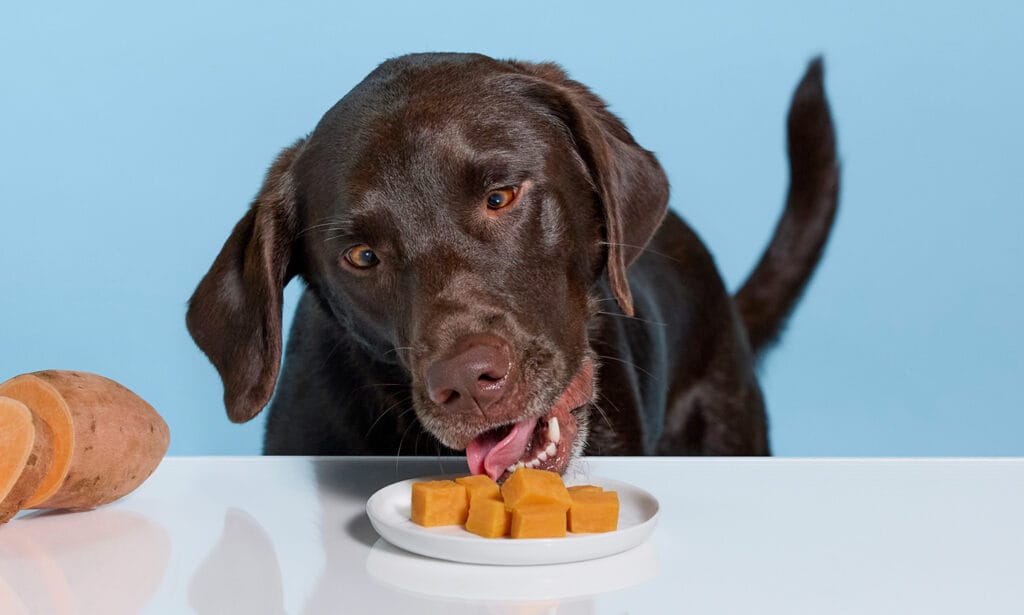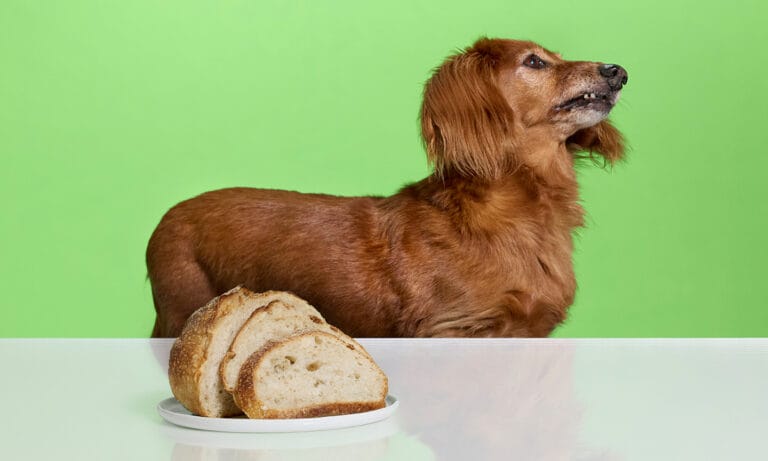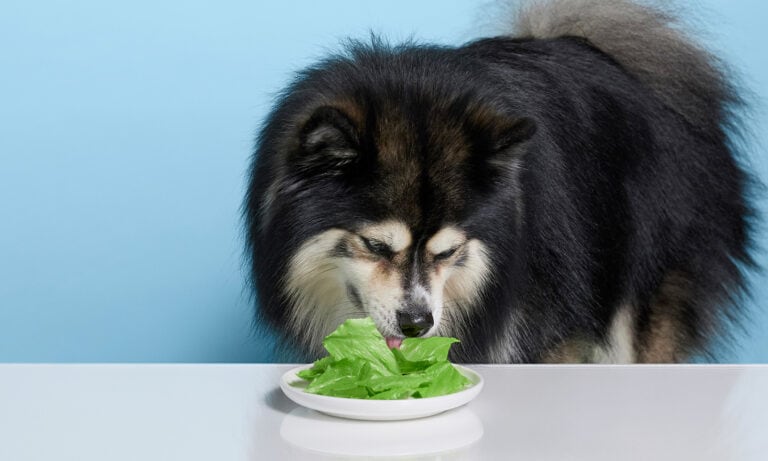Can dogs eat sweet potato? Yes, they can—as long as they’re served up plain and cooked thoroughly. (Sorry, pups, no sweet potato fries for you!)
Your dog can enjoy this starchy-yet-sweet vegetable cooked, boiled, steamed, baked, or even dehydrated. And the best part is that sweet potatoes are not only available at most grocery stores year-round, but they’re also inexpensive and easy to prepare.
Here’s how to safely prepare and serve sweet potatoes to dogs.
Before introducing any new food into your dog's diet, always check with your veterinarian.
In This Guide:
Are Sweet Potatoes Good for Dogs?
Yes! When fed in moderation, sweet potatoes can be a nutritious addition to your dog’s balanced diet.
Here are the possible benefits of sweet potatoes for dogs, according to Katrin Ventocilla, DVM, owner of PACK Animal Care in Lorton, Virginia:
- They’re high in fiber, promoting good digestion and helping your dog’s overall digestive health.
- They’re high in beta-carotene, which is a fantastic antioxidant. Dogs can convert beta-carotene into vitamin A, which boosts the immune system and supports your dog’s vision and skin.
- They also contain protein along with vitamins C, B6, and B5, manganese, and potassium, all of which are good for your dog.
Can Sweet Potatoes Be Bad for Dogs?
While dogs can eat sweet potato as a treat or mixed in with their regular food, keep the following in mind before feeding your dog sweet potato:
- Raw sweet potato can be a choking hazard. Plus, it can be difficult to chew and possibly obstruct the gastrointestinal tract. That’s why dogs should only eat cooked sweet potato.
- Eating too much can lead to an upset stomach. If your dog has never eaten sweet potato, start by feeding them a small amount to see if they have a negative reaction, like an upset stomach or allergic reaction. If all is well, then you can slowly increase the quantity over time.
How Much Sweet Potato Can a Dog Have?
A small dog can eat about 1 teaspoon of cooked sweet potato per day and a larger dog can eat 1 tablespoon—or one to two bite-size pieces—daily, says Dr. Ventocilla.
In general, human foods should be considered treats, and treats should make up no more than 10% of the total calories of your dog’s daily diet, with the rest coming from a complete and well-balanced dog food.
You should always consult with your vet before serving sweet potato to determine the right portion size for your dog. Even a healthy treat like sweet potato should be factored into your dog’s optimum daily balanced diet.
How To Feed Sweet Potato to Your Dog
Here are some tips for safely preparing sweet potato for dogs:
- Peel ’em. Because sweet potato skin can be difficult to digest, it’s best to peel the potatoes.
- Cook, boil, steam, bake, or dehydrate them. Any of these ways of serving up sweet potato to your dog is OK! What’s important is that the sweet potato is cooked and not served raw.
- Keep them plain. That means no added milk, cream, butter, oil, salt, or other seasonings.
- Cut into bite-size cubes. Make sure the cubes are appropriate for your dog’s weight and size.
Now that the sweet potatoes are properly prepared, here are some ways to serve it to your pup:
- As a small snack: Too much sweet potato, which is high in fiber, can cause GI upset.
- Mixed in with their regular food: Try hiding the sweet potato under your dog’s regular kibble to make them work for this yummy treat.
- Stuffed into their favorite toy: If you’re serving your pup mashed sweet potatoes, try stuffing into the KONG® Classic dog toy.
- Spread over a lick mat: Or, spread the mashed sweet potatoes on a lick mat, like this one from Frisco®.
Dog Food and Treats with Sweet Potato
Sweet potatoes are a common ingredient in dog food and treats, especially ones made for sensitive stomachs and hypoallergenic diets.
Here are some of our favorites:
FAQs About Dogs and Sweet Potatoes
Q:Can dogs eat sweet potato skin?
A:No, dogs should not eat sweet potato skin because sweet potato skin can be difficult to digest.
Q:Can dogs eat sweet potato pie?
A:Sweet potato pie is off limits for dogs, because it contains fillers, sugar, and spices that can be toxic to dogs.
More foods dogs can eat:
Share:














